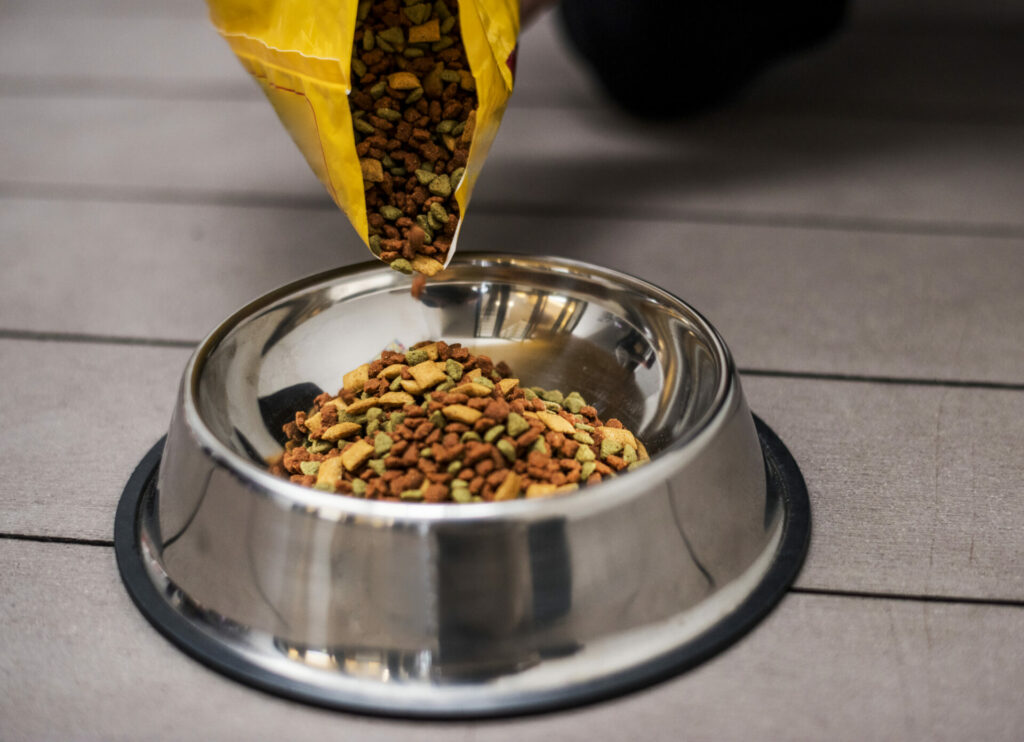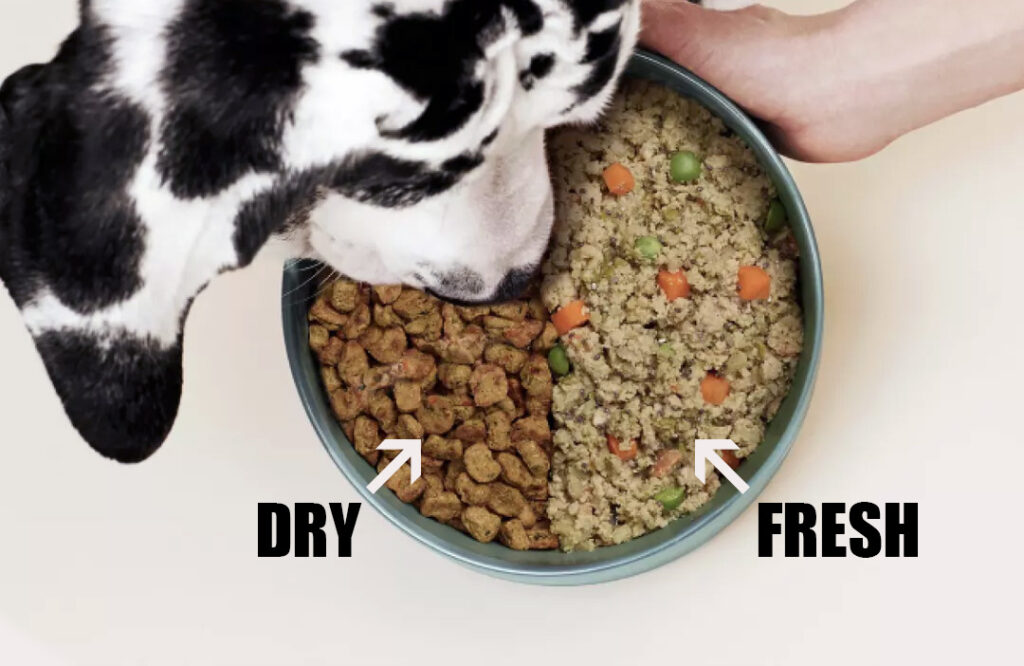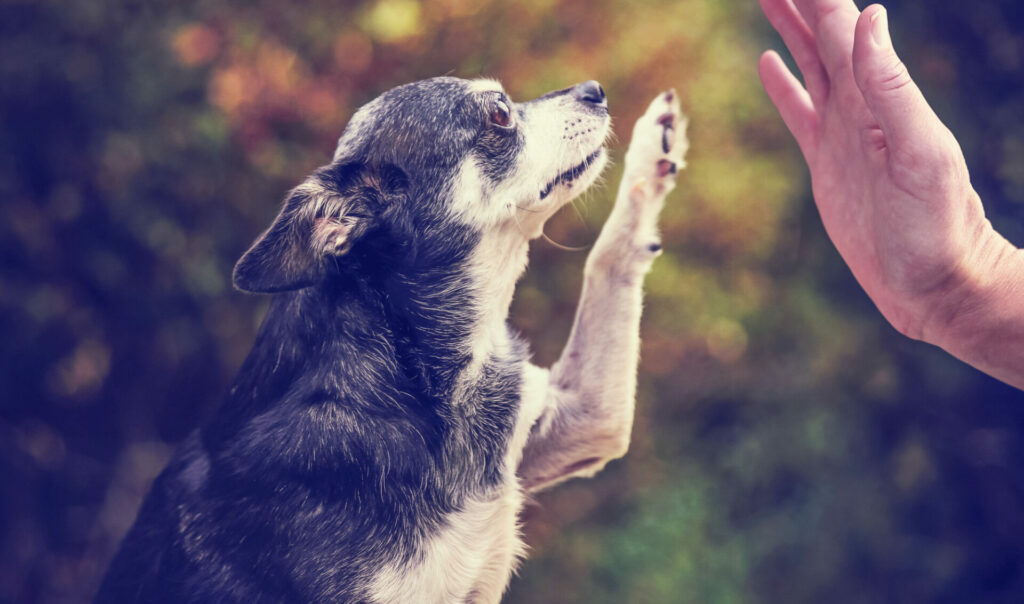Welcome to our comprehensive guide on senior dog nutrition, a topic that holds special importance for anyone who shares their life with an older canine companion. As dogs age, their dietary needs evolve, making it crucial to adapt their meals accordingly. This article aims to be your go-to resource, covering everything from the specific nutrients your senior dog needs to the role of specialized diets based on health conditions.
We’ll explore what makes a dog “senior,” delve into the key nutritional differences between adult and senior dogs, and even discuss the pros and cons of commercial dog food versus homemade meals. Interested in learning how to transition your older dog to a new diet or wondering what signs indicate their nutritional needs aren’t being met? We’ve got that covered too.
So, whether you’re trying to address specific health issues like arthritis and diabetes or simply want to make sure your senior pooch is as healthy and happy as possible, read on for all the insights you need.
What Qualifies as a ‘Senior’ Dog?
Determining when a dog becomes a senior can vary widely based on breed, size, and overall health. Generally speaking, dogs are considered senior when they reach about 7 to 10 years of age. However, larger breeds may show signs of aging earlier, around 5 to 6 years, while smaller breeds might not show these signs until they are closer to 10 or 11.
Understanding your dog’s life stage is essential, as it helps guide your decisions around diet, exercise, and healthcare. Consulting your veterinarian is the best way to assess whether your dog has officially reached their “golden years” and what that means for their dietary needs.
Key Differences Between Adult and Senior Dog Nutrition

As dogs age, their metabolism tends to slow down, requiring adjustments in their caloric intake to prevent obesity. On the flip side, some senior dogs may experience muscle loss and require more protein to maintain their muscle mass. The balance of nutrients like proteins, fats, and fibers will often need to be reevaluated.
Senior dogs may also have more sensitive digestive systems, making the quality and digestibility of their food a high priority. Foods formulated for seniors often contain more easily digestible ingredients and may include probiotics to support gut health.
Additionally, older dogs may benefit from certain nutritional supplements like glucosamine for joint health or omega-3 fatty acids for skin and coat well-being. It’s a nuanced topic, and understanding these key differences can go a long way in optimizing your senior dog’s diet for their unique needs.
Specific Nutritional Needs of Senior Dogs
Protein is crucial, especially high-quality animal protein, to maintain muscle mass and overall health. Some experts even recommend slightly increasing protein intake for older dogs.
Fats are another essential component but should be moderated. Omega-3 and Omega-6 fatty acids can benefit not just the coat and skin, but also brain health. Remember, however, to balance fatty intake with caloric needs to avoid weight gain.
Fiber is increasingly important for senior dogs to aid in digestion and help manage weight. Foods rich in soluble and insoluble fibers can be beneficial. Some commercial dog foods designed for seniors incorporate higher fiber content for this reason.
Lastly, don’t overlook vitamins and minerals like calcium, phosphorus, and certain antioxidants that can aid in combating age-related cellular damage. Tailoring these elements in your dog’s diet can play a significant role in their well-being during their senior years.
Special Diets for Health Conditions
Senior dogs are often more susceptible to certain health conditions that may require specialized diets. For instance, dogs with arthritis may benefit from a diet rich in anti-inflammatory nutrients like Omega-3 fatty acids. There are even specialized dog foods designed to support joint health.
If your senior dog has diabetes, a diet high in fiber and complex carbohydrates can help regulate blood sugar levels. Protein is also important but needs to be balanced carefully to avoid exacerbating the condition.
Obesity is a common issue in older dogs due to reduced activity and metabolic rate. Low-fat, high-fiber foods can help manage weight effectively, but it’s crucial to consult a veterinarian for a tailored weight management plan.
Lastly, kidney issues can arise in senior dogs, necessitating a diet lower in protein and phosphorus. Again, consultation with a vet is essential for creating a diet plan that meets the needs of a dog with a specific health condition.
Commercial Dog Food vs Homemade Meals

When it comes to feeding your senior dog, you have two primary options: commercial dog food or homemade meals. Commercial dog foods designed for seniors often come fortified with essential nutrients and are more convenient to serve. However, they can also contain preservatives and fillers that may not be ideal for all dogs.
Homemade meals give you complete control over what goes into your dog’s diet. You can customize meals based on their specific needs, but it requires more time and effort to ensure a balanced diet. Consulting a vet or a pet nutritionist is highly recommended if you’re going this route to make sure you’re meeting all of your dog’s nutritional needs.
Both approaches have their merits and drawbacks, and the best choice often depends on your dog’s health conditions, your lifestyle, and your preferences.
What to Avoid
Knowing what not to feed your senior dog is just as important as knowing what to feed them. Certain foods are toxic to all dogs, including chocolate, grapes, and onions, so these should always be avoided. But older dogs may also have sensitivities or intolerances that weren’t apparent in their younger years, so it’s good to be cautious.
Overfeeding is another issue, particularly for senior dogs whose metabolism has slowed. Excess calories can lead to obesity, putting extra stress on already aging joints and organs. On the other hand, underfeeding can result in nutritional deficiencies, especially risky for seniors.
Lastly, an unbalanced diet can cause a variety of health issues, from digestive troubles to more severe conditions related to deficiencies or excesses in certain nutrients. Always aim for a balanced diet that meets the specific needs of your aging dog, and consult a vet for personalized advice.
Signs Your Senior Dog’s Nutritional Needs Aren’t Being Met
It’s essential to know what signs to look for to determine if your senior dog’s dietary needs are not being adequately met. Physical symptoms such as a dull coat, dry skin, or excessive shedding can signal nutritional deficiencies. Similarly, a sudden change in weight—either gain or loss—could be a red flag.
Behavioral changes can also indicate nutritional issues. If your dog becomes lethargic, less interested in play, or shows signs of increased anxiety or restlessness, it may be related to their diet. Dental issues can affect their ability to eat and thus their nutrient intake, so also look for signs like bad breath or difficulty chewing.
Any of these symptoms warrant a trip to the veterinarian. An expert can provide a thorough evaluation and possibly adjust your senior dog’s diet to better meet their nutritional needs.
Role of Supplements
Supplements can play an essential role in bridging nutritional gaps in a senior dog’s diet. Glucosamine and chondroitin are commonly recommended for joint health, especially for dogs prone to arthritis or those showing signs of joint stiffness. Fish oils rich in Omega-3 fatty acids can support both skin and cognitive health, making them beneficial for older dogs.
Probiotics can aid in digestion and help maintain a healthy gut flora, particularly important if your senior dog has been on medication or antibiotics. However, it’s essential to note that supplements should not replace a balanced diet but rather complement it.
Before adding any supplements to your dog’s diet, consult with a veterinarian for proper dosing and to ensure they won’t interfere with any medications or conditions your dog may have. It’s the safest way to integrate supplements effectively into your senior dog’s nutrition plan.
Consulting a Vet
One of the most critical steps in managing your senior dog’s nutritional needs is consulting a veterinarian for personalized advice. A vet can provide a thorough evaluation of your dog’s overall health, consider any pre-existing conditions, and offer tailored recommendations for a balanced diet.
Routine check-ups are especially vital for older dogs, where blood tests and other diagnostics can provide insight into how well their current diet is meeting their nutritional needs. In some cases, a specialized diet may be prescribed, or additional testing may be necessary to diagnose or rule out specific health issues.
Your veterinarian is your best resource for ensuring that your senior dog is receiving the nutrition they need to live a healthy, happy life during their golden years. Don’t skip this essential step in the care of your senior pet.
Frequently Asked Questions
To further assist you in navigating the complexities of senior dog nutrition, here are answers to some frequently asked questions.
Both have pros and cons; wet food is easier to chew, while dry food is good for dental health. Consult your vet for personalized advice.
Generally not recommended, as puppy food has a different nutrient balance that may not be suitable for senior dogs.
This varies by breed and health condition, but generally, smaller, more frequent meals are easier on an older dog’s digestive system.
Grain-free diets can be beneficial for dogs with specific allergies, but they are not universally better for all senior dogs.
Over-the-counter supplements such as fish oil can be beneficial for certain ailments that senior dogs have, but always consult your vet before giving human supplements to ensure proper dosing and compatibility with your dog’s health conditions.
Symptoms can include itching, digestive upset, and skin infections. A vet can diagnose and recommend an elimination diet to identify the issue.
By addressing these frequently asked questions, we hope to clear up any additional uncertainties you may have about how to best meet the dietary needs of your senior dog.

